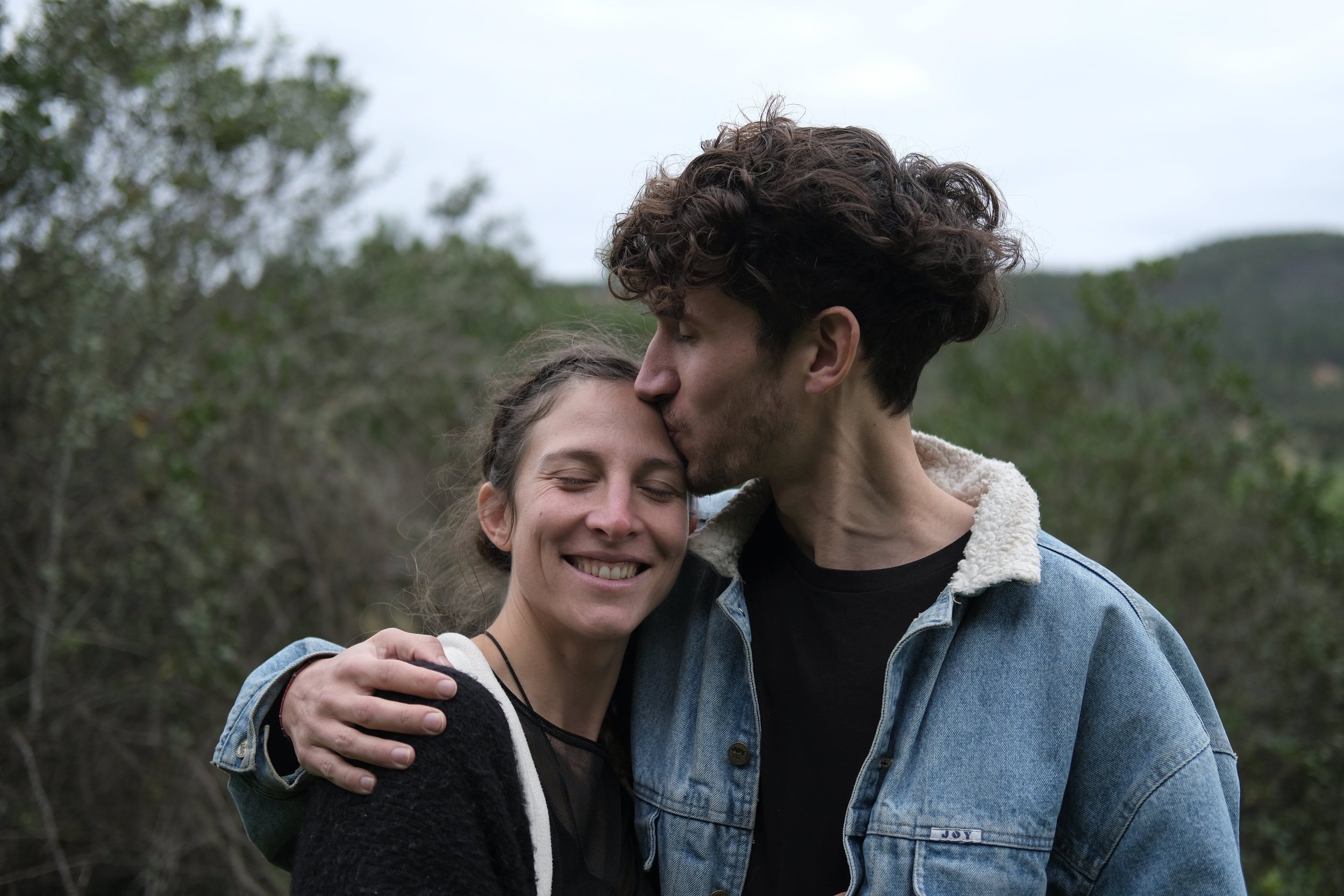The Secret Behind Peaceful Conflict Resolution In Relationships
When Relationship Work Pays Off
Recently my partner Matt and I were walking in a nearby park and I had one of those glorious moments when I consciously experienced how the relationship work we’ve been putting in the last years has paid off. A situation that would have ended up in a heated argument 5 years ago was resolved peacefully and consciously in about 5 minutes – what a brilliant feeling!
Old wounds trigger feelings of anger and hurt
So let me tell you what happened: I had planned to hold a Q&A session on Meetup and because I was a bit nervous about it I had asked my partner Matt 2 weeks before if he could host the session and monitor the questions so that I could concentrate on answering the questions. He said, yes, he would be happy to. Then the night before Matt started to feel unwell and on the morning of the day it was clear that he had come down with a cold.
In my mind I already had come to terms that he would not be able to support me in the Q&A and I was thinking about how I would go about doing it on my own. I felt some anxiety come up and wanted to talk about it, which I did on our usual morning walk in the park. As I started to talk about my feelings in regards to the Q&A, he was quietly listening and I started to feel hurt and annoyed.
Now let me slow down for you what happened here:
I get really triggered when someone does not keep their promises. But more than that, when they don’t even acknowledge they’ve made that promise or brush it off as if it’s nothing. This is connected to my Dad, who is an amazing man but does not always follow through with what he says – and then when confronted with it he gets angry, which makes me feel like my emotions don’t matter.
Most conflicts are about blame and shame
So, the reason why I was getting angry in the park was because when I started talking about the Q&A, Matt did not acknowledge that he had planned to take part in it. 5 years ago the situation would have very likely gone something like this:
Veronika: “You promised you would show up and now you don’t even say sorry that you can’t come! That’s so typical! You’re never there when I need you!”
Matt: “That’s not true, I’m always there for you! Can’t you see I’m really sick! Why are you like this when all I do is cheer you on!”
Veronika: “That’s not true, when it comes down to it you are flaky and you won’t even admit it! I always have to do everything alone! I feel really shit!”
Matt: “This is really unbelievable, why are you like this! I’ll do the stupid Q&A but know that I feel horrible! I feel dizzy right in this moment!”
Veronika: “I don’t want your help, you’re just saying this because you feel guilty and you want me to shut up! I’m gonna do this on my own, like always and I can do it because I’m a strong woman!” (storms off)
Matt stares in disbelief at me running off and doesn’t even know what just happened, it all went so fast.
Sounds familiar? Yes, many arguments follow this pattern in relationships and it’s one of my main efforts to show people how to get out of this vicious cycle of accusations, blame and generalisations to establish a more vulnerable, direct and empathic communication which make conflicts actually a connecting experience. Because what is underneath all this blame? Hurt, shame, fear, sadness – all the vulnerable emotions.
How we were able to resolve the conflict peacefully
Now let me tell you about my glorious moment and how our conversation actually went:
Veronika: “Hey babe, do you remember that you promised to support me in the Q&A today? I understand that you can’t take part because you’re unwell but I’d like you to acknowledge that you made a promise to be there for me.”
Matt: “Oh, I know but I’m really sick, I would have loved to be there for you.”
Veronika: “I know but could you just acknowledge it? I feel some anger about it and would like that part to be able to hear it.”
Matt: “I know I made a promise to be there and I’m really sorry I can’t. I know that this kind of support is really important to you. I feel also shame for not being able to be true to my word and it’s hard for me to not be able to support you.”
Veronika: “Thank you for saying that. And I know that you don’t like not keeping promises but it’s really important for me to be able to voice my anger and be heard – I feel much better now. And I can totally see that you are not well and that it’s not your fault that you can’t be there. I feel some anxiety about the Q&A but just talking about it now helps me.”
Matt: “I think you are going to be really great! And if it doesn’t go well I’m just downstairs and you can call me anytime and I will help you!”
Veronika: “Oh babe, I know that makes me fell really safe – you’re always there to help me! I’m also excited for tonight, I love answering questions!”
And then I realised how amazing we had just solved this conflict and how connected we felt now after being able to express our feelings. You see this conversation is much more honest and clear than the other conversation, yet it’s much more peaceful – why is that?
Conflict resolution is about understanding each other’s perspective
By letting others hear our real feelings without blame, it’s much easier to have compassion for each other and to come to a place of understanding – and that’s the foundation for peaceful conflict resolution. For example when I said that felt angry about Matt not acknowledging his promise (instead of lashing out on him) he could see that this is connected to my past. We know each other very well and so he’s aware that these feelings are about the relationship with my Dad.
“By letting others hear our real feelings without blame, it’s much easier to have compassion for each other.”
But still, if I would have lashed out, his defense mechanism would have been triggered and it would have been very difficult for him to be compassionate. But because I stayed vulnerable, he was able to feel much more compassion and be open to hear about my experience in a calm and loving way.
When he said that he felt shame about not being able to keep his promise, I immediately felt more compassion because I know that Matt finds it difficult to not be true to his word and his instinctive reaction to protect himself from the pain of feeling shame is to not acknowledge when he breaks a promise.
Again, I know this about him because we did a lot of emotional work together. If this situation would have occurred with anther person it would have been helpful for me I’ve they’d explain this tendency of wanting to protect themselves from feeling shame.
So as you can see, we both experienced an emotional trigger but instead of reacting defensively we were able to be vulnerable and understand each others perspective.
I hope that reading this inspires you to know that relationship skills can be learned and that the rewards of putting in the work are amazing because the feeling of harmony and connection you can experience is priceless!
Related Blogs:
Trauma Relationships Explained: How To Know You’re Dating The Wrong Person
Trust Issues? Follow the 3 Principles of Healthy Relating








